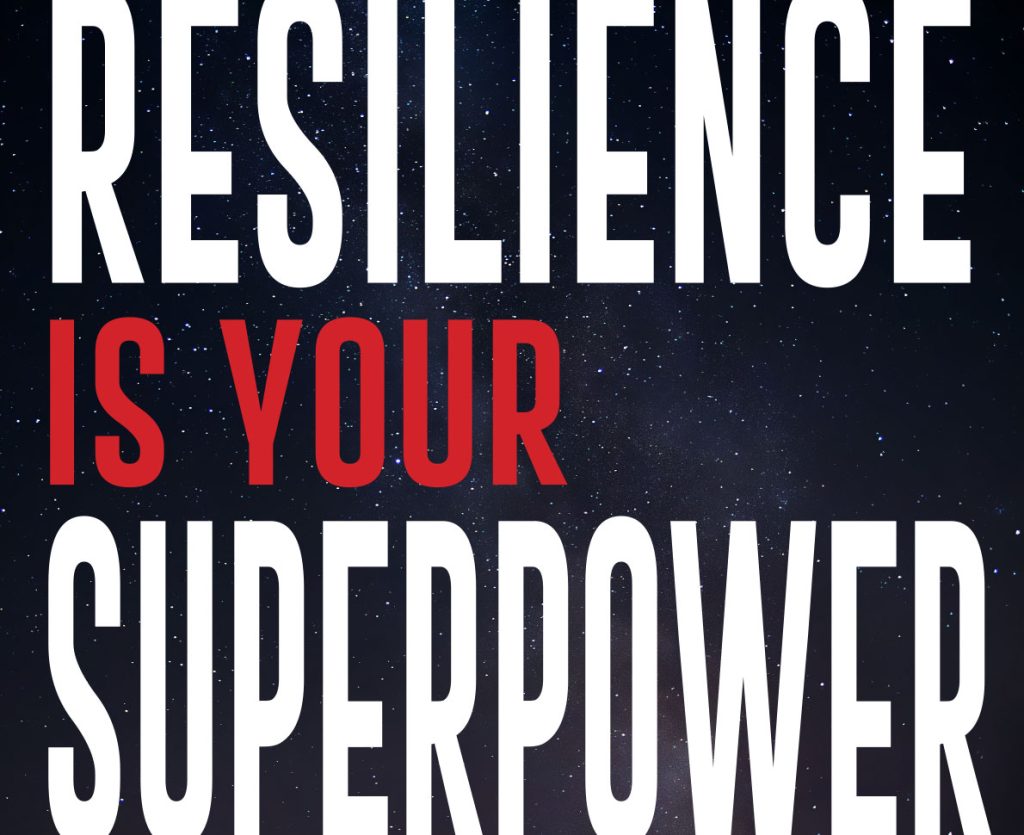
Resilience is the ability to “bounce back” after a negative event. Think about a new rubber band versus an old piece of elastic. Stretch the first one and it will quickly bring itself back to its original shape. But the waistband of that old pair of shorts forgotten in the back of your closet? There is no quick return to ANYTHING, you may even hear some ripping and see some new fraying!
As important as it is to have good elastic holding up our shorts, it is even more important to encourage its development in our children. All of us experience setbacks, large and small, on a daily basis. The happiest and healthiest people have the “rubber band” resiliency that resumes our original state (sometimes even a BETTER state than before) after being stretched by a setback!
Science suggests our ability to be resilient to the loss of loved ones, financial crises, health issues, relationship problems, job loss and more, has a genetic basis, BUT we also know resilience can be developed and strengthened through deliberate practice. Here are some ways to encourage resilience for our children.
Haven’t we all said “I wish I could wrap my child in bubble wrap so the world can’t hurt them?” Good news – we CAN and that bubble wrap is resilience. When your child experiences a failure or any kind of upsetting situation, encourage them to tell you about it. Acknowledge the experience and his or her feelings. “That must have really hurt….” or “When friends say things like that, it really makes us feel sad….” or “I know it was your favorite toy that broke….” or “Chico was the best dog, I know your heart is hurting….”
As parents, we may think we know exactly what to do in order to get past the hurt our child is feeling. Resist the urge to take the easy path of telling them what to do. (That’s called “snowplow parenting” — you might be able to remove the snow sometimes, but not always. Your child has to know what to do when they find their way blocked with a mountain of snow and you aren’t around!) Instead, ask them questions to help them identify ideas themselves. The younger the child, the more you may have to lead them. For example, “I would like to draw some pictures of Chico to help me remember how great he was, will you do that too?” for a young child, but an older child might need less guidance, such as “What could we do to help us remember Chico?”
Let children know they will eventually feel better. Acknowledge it will not happen immediately or without some action on their part. Travel with them through their times of painful memory and loss, and let them know seeking help from you or others who care about them is perfectly okay. Share your own personal experience of how you dealt with a similar situation, being sure it is developmentally appropriate. Ask their opinion of what you did.
When things are going well for your child, use together time to offer them age appropriate “what if…” situations. These can be pain-free opportunities to practice resilience. “One hundred on your spelling test! Great! What if that score was a 50 instead? What would you have done?” or “Miguel didn’t invite the new boy in the class to his birthday party? How would you have felt if that was you? What would you have done?” or “That’s a picture of my grandma and I miss her every day. Some of the things I do to help me remember her are….”
Love and support, rather than simply SOLVING our child’s issue, will encourage them to face not only this immediate challenge, but the next and the next.
Author
-

Mental Health Matters: The northern Taos County communities have lost several young people in recent months. Questa del Rio News is starting a column dedicated to mental health matters. Dawn Provencher is a retired counselor. She has a master’s degree in counseling and a master’s degree in social work. She will be contributing to this column on a monthly basis.
View all posts



